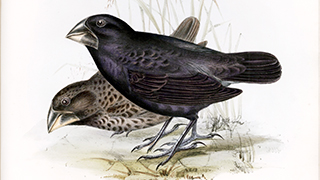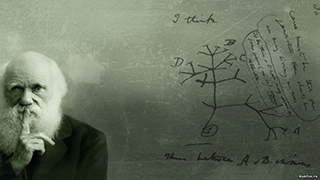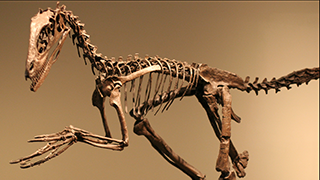MENU
The Electronic Scholarly Publishing Project: Providing world-wide, free access to classic scientific papers and other scholarly materials, since 1993.
More About: ESP | OUR CONTENT | THIS WEBSITE | WHAT'S NEW | WHAT'S HOT
ESP Legal Notifications: Cookies 21 Jan 2026 Updated:
ESP.ORG Cookie Policy
This policy was last updated 21 Dec 2016.
The ESP.ORG website is operated as a service to the scientific community. This page informs you of our policies regarding the use of cookies to control the operations of the site, to track the behavior of users on the site, and for other purposes.

Nice, if used sensibly.
A web cookie is a small piece of data sent from a website and stored on the user's computer by the user's web browser while the user is browsing.
Cookies work sort of like reminder notes, written by the server, for the server. The server creates these notes, then sends them to your computer. Every time you go back to the server, or go to another page, you send the cookie back to the server. That way, the server can keep track of information from your earlier visits.
Every time you go to a web page, it is a new experience for the server. Using just basic web protocols, the server has no way of knowing if you have just spent an hour picking out 22 things to buy, or whether this is your very first visit to the web site. But, with cookies the server can keep writing reminders to itself about what you did earlier (where earlier might mean two seconds ago).
Cookies can keep track of whether or not you are currently logged in, if you have put goodies in a shopping basket, and many other details.
A cookie includes instructions from the server about how long the client computer should keep the cookie before discarding it. Originally, most cookies were used to maintain current information about a particular session on a particular web server, so there wasn't much use in having them stay around forever.
However, programmers realized that by having cookies stay around longer and by having them be able to share information among different web servers, they could be used to create a more coherent experience for users, across multiple web servers. Because these kinds of cookies can keep long-term track of where a user had been, they are called tracking cookies.
Tracking cookies are one of the reasons why, when you visit, say, a newspaper site, you often see ads popping up offering to sell you things that you just investigated using a search engine, or that you just looked at on Amazon.
Tracking cookies can be useful, but they are also a little creepy — kind of like having someone follow you around constantly, taking notes on every place you go and everything you do, then calling ahead to let the folks at Macy's know that you just spent an hour at REI looking at camping gear.
Because such information can easily be abused, several governments have enacted laws that limit the use of tracking cookies, at least to the extent of requiring informed consent before the cookies are deployed. However, if our experience is a guide, most websites just satisfy this requirement by producing a little pop-up that says something like, "We use cookies to improve your experience on our website. OK?"
The term "cookie" for these little web-server reminders was coined by a programmer named Lou Montulli, based on the idea of a magic cookie (which is what Unix programmers called a packet of data that a program receives and sends back unchanged). The phrase "magic cookie" came from the idea of a "fortune cookie" — a cookie containing an embedded message. For an NPR take on Lou Montulli and his cookies, click HERE
Our cookie policy is simple: we do not, at present, use cookies.
We do, however, reserve the right to begin using cookies, should they become technically useful for the design and operation of the Site. For example, if we were to let users register to receive update notifications, that would probably require the use of cookies to track login and registration data.
If we do adopt some manner of cookie technology, we will update this policy accordingly. We will also then probably implement one of those lame pop-ups that say, "We use cookies to improve your experience on our website. You like the idea of an improved experience, right? Click yes to experience wonderfulness or click no to go back to using ftp, or maybe gopher."
Anyone who remembers the days of ftp or gopher wins a special gold star for demonstrating mastery of tech history.
ESP Quick Facts
ESP Origins
In the early 1990's, Robert Robbins was a faculty member at Johns Hopkins, where he directed the informatics core of GDB — the human gene-mapping database of the international human genome project. To share papers with colleagues around the world, he set up a small paper-sharing section on his personal web page. This small project evolved into The Electronic Scholarly Publishing Project.
ESP Support
In 1995, Robbins became the VP/IT of the Fred Hutchinson Cancer Research Center in Seattle, WA. Soon after arriving in Seattle, Robbins secured funding, through the ELSI component of the US Human Genome Project, to create the original ESP.ORG web site, with the formal goal of providing free, world-wide access to the literature of classical genetics.
ESP Rationale
Although the methods of molecular biology can seem almost magical to the uninitiated, the original techniques of classical genetics are readily appreciated by one and all: cross individuals that differ in some inherited trait, collect all of the progeny, score their attributes, and propose mechanisms to explain the patterns of inheritance observed.
ESP Goal
In reading the early works of classical genetics, one is drawn, almost inexorably, into ever more complex models, until molecular explanations begin to seem both necessary and natural. At that point, the tools for understanding genome research are at hand. Assisting readers reach this point was the original goal of The Electronic Scholarly Publishing Project.
ESP Usage
Usage of the site grew rapidly and has remained high. Faculty began to use the site for their assigned readings. Other on-line publishers, ranging from The New York Times to Nature referenced ESP materials in their own publications. Nobel laureates (e.g., Joshua Lederberg) regularly used the site and even wrote to suggest changes and improvements.
ESP Content
When the site began, no journals were making their early content available in digital format. As a result, ESP was obliged to digitize classic literature before it could be made available. For many important papers — such as Mendel's original paper or the first genetic map — ESP had to produce entirely new typeset versions of the works, if they were to be available in a high-quality format.
ESP Help
Early support from the DOE component of the Human Genome Project was critically important for getting the ESP project on a firm foundation. Since that funding ended (nearly 20 years ago), the project has been operated as a purely volunteer effort. Anyone wishing to assist in these efforts should send an email to Robbins.
ESP Plans
With the development of methods for adding typeset side notes to PDF files, the ESP project now plans to add annotated versions of some classical papers to its holdings. We also plan to add new reference and pedagogical material. We have already started providing regularly updated, comprehensive bibliographies to the ESP.ORG site.
ESP Picks from Around the Web (updated 28 JUL 2024 )
Old Science

Weird Science

Treating Disease with Fecal Transplantation
Fossils of miniature humans (hobbits) discovered in Indonesia
Paleontology

Dinosaur tail, complete with feathers, found preserved in amber.
Astronomy

Mysterious fast radio burst (FRB) detected in the distant universe.
Big Data & Informatics

Big Data: Buzzword or Big Deal?
Hacking the genome: Identifying anonymized human subjects using publicly available data.